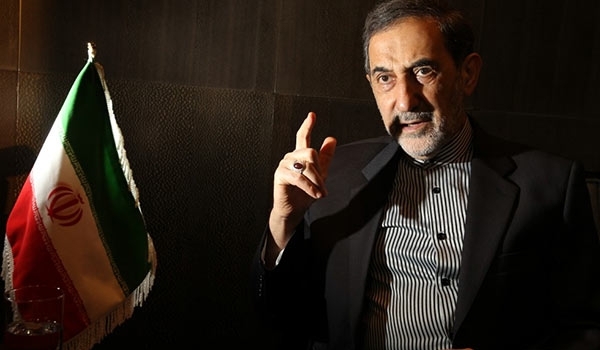Leader’s Top Aide underlined that Iran will not allow access of foreigners to its sensitive military sites.
‘Iran will never let any foreigner have access to its military sites,’ Ali Akbar Velayati told reporters.
He noted that the visits (by foreigners) to the Islamic Republic’s military sites are forbidden on the basis of the Leader’s very specific viewpoints.
‘We won’t permit any stranger, either American or non-American, to visit the Islamic Republic’s military and sensitive centers,’ he underlined.
His remarks came after Leader of the Islamic Revolution Ayatollah Seyyed Ali Khamenei said in May that Iran will not allow the inspection of its military sites.
The Leader ruled out any request for interviews with Tehran’s nuclear scientists, and described it as an instance of ‘interrogation‘.
‘I would not let foreigners come (here) and talk to the Iranian people beloved scientists… who have broadened this wide knowledge to this field,’ he added.
Iran and Group 5+1 (Russia, China, the US, Britain, France and Germany) have been negotiating to hammer out a lasting accord that would end more than a decade of impasse over Tehran’s peaceful nuclear program.
On April 2, the two sides reached a framework nuclear agreement after more than a week of intensive negotiations in Lausanne, Switzerland, with both sides committed to push for a final, comprehensive accord until the end of June.
Iran seeks closer military ties with China – Velayati
 In another development, Ali Akbar Velayatithe Iranian Supreme Leader’s top adviser for international affairs underscored on Monday that his country is keen to build closer military ties with China, welcoming Beijing to expand its naval presence worldwide.
In another development, Ali Akbar Velayatithe Iranian Supreme Leader’s top adviser for international affairs underscored on Monday that his country is keen to build closer military ties with China, welcoming Beijing to expand its naval presence worldwide.
“It is right for China, as a great power, to do that. You see the United States is also sending its military vessels everywhere. It is China’s right to send its military vessels,” Velayati said in an interview with the South China Morning Post.
He further added that the two states might conduct more port calls because of China’s growing commercial interests.
“We have to support the transshipment of goods between Iran and other countries. The same right applies to China. It is the right of a country to defend its own transshipment of goods,” the Iranian official underscored.
Elsewhere, Velayati called on Beijing to play bigger role in Iran nuclear talks with other world powers.
“China and Russia have had a moderate position in the negotiation,” the adviser said. “If the Chinese position is more active, it will affect the continuation of the positive result of the talks,” he pointed out.
In April, Iranian and Chinese officials in a meeting in Moscow underlined the two countries’ determination to further strengthen military relations.
“Iran and China have enjoyed good relations since long ago and the Iranian Armed Forces are our good friends,” Chinese Defense Minister General Chang Wanquan said in a meeting with his Iranian counterpart Brigadier General HosseinDehqan on the sidelines of the Fourth International Security Meeting.
“The current conditions in the world necessitate strengthening and consolidating bilateral and multilateral defense and military cooperation,” he added.
Chang also underscored the necessity for implementation of defensive agreements signed by the two countries.
Dehqan, for his part, pointed to Iran and China’s highly successful experience in defensive cooperation, and said the two countries’ determination to deepen cooperation can further reinvigorate their bonds and relations.
Iran and China have expanded relations in different trade, economic, military and scientific fields in recent years.
IRNA, FNA
R.S

